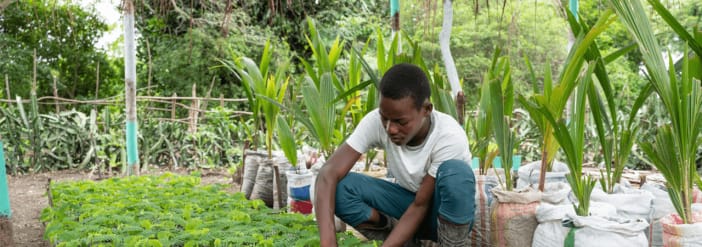Cleaning up and transforming communities in Haiti
Written by Tearfund | 18 Jun 2020



Written by
Written by Tearfund
Millions of people in Haiti, especially those living in the poorest communities, are currently living among huge piles of waste. Their health is suffering in unsafe and unsanitary conditions. But a new project is helping to reverse these negative effects and empower communities.
In Haiti’s urban communities, it’s common for as many people as possible try to squeeze into limited living spaces. This comes with inevitable challenges, and one particularly unpleasant problem is having to live and work among other people’s waste.
But with limited services in place for waste collection and disposal, people are often left with no choice but to let their waste pile up around their homes and businesses, dump it in rivers, or burn it in the streets. None of these options are safe or sustainable.
The problem is literally growing bigger by the day.
Living among large piles of rotting waste is not only unsightly and unpleasant, it’s also a serious health hazard. Residential areas become breeding grounds for insects and rodents, and disease spreads easily.
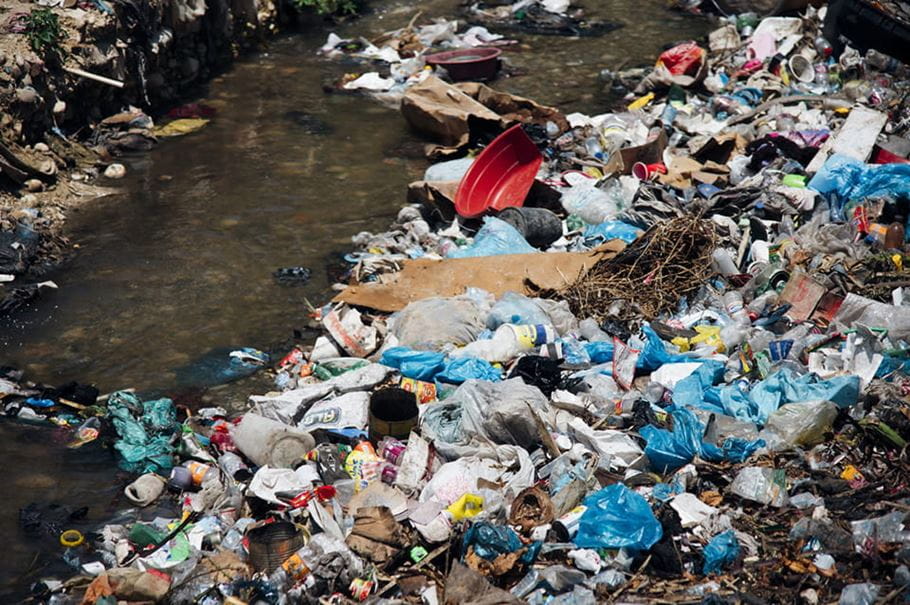
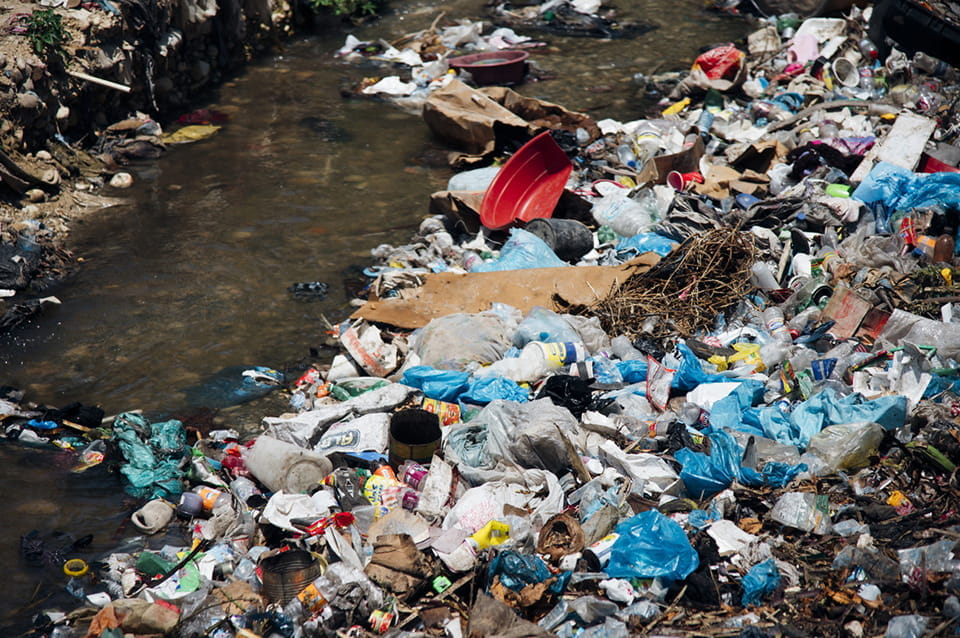
Tonnes of waste get dumped in the streets or rivers in Haiti’s urban communities. Credit: Ruth Towell/Tearfund
A threat to public health and the environment
The burning of waste on open fires is a common last resort when people have no other options to dispose of their rubbish. This has serious health implications: regularly breathing in the toxic fumes causes respiratory problems, which can be fatal.
But it’s not just burning that’s the problem. Piles of waste emit methane – a greenhouse gas which is damaging to humans and the environment. In the short-term it can cause vomiting, diarrhoea and headaches. In the long-term it can lead to respiratory and heart problems, as well as contributing towards the climate crisis.
Climate change is already having a noticeable effect in Haiti – extreme weather events such as hurricanes and tropical storms are becoming increasingly common – and communities overrun with solid waste are left significantly more vulnerable to destruction.
When drains and roads are blocked by waste, the area is much more susceptible to flooding and landslides. People are at risk of getting trapped and hurt, and their homes and businesses are often destroyed.
Loving our neighbour means caring for creation
It’s the poorest communities that are suffering the most, struggling with health issues on a daily basis and often experiencing the most destruction in the wake of extreme weather events.
Failing to create sustainable systems for managing waste and looking after the environment is having a direct impact on people’s health and wellbeing.
If we want to love our neighbour, we have to care for creation too.
Marc Antoine, who leads Tearfund’s work in Haiti, sums up the problem: ‘In Haiti, the lack of waste management infrastructure, vulnerability to weather-related disasters such as hurricanes and floods, and high rates of unemployment work together to keep communities disempowered.’
Cleaning up and empowering communities
To address this complex problem, Tearfund has partnered with a local business to pilot a new waste management project in the urban area of Carrefour.
The project trains community members to care for creation and how to sort and manage their waste without resorting to dumping it in rivers or burning it in the streets.
Tearfund’s local partner collects waste from homes in the community on a weekly basis. This is providing jobs for young people who were previously unemployed, giving them new opportunities and a way to earn income to support their families.
Rather than adding the waste to landfill, the business is doing something innovative and exciting. They transform plastic waste into paving tiles and organic waste into compost.
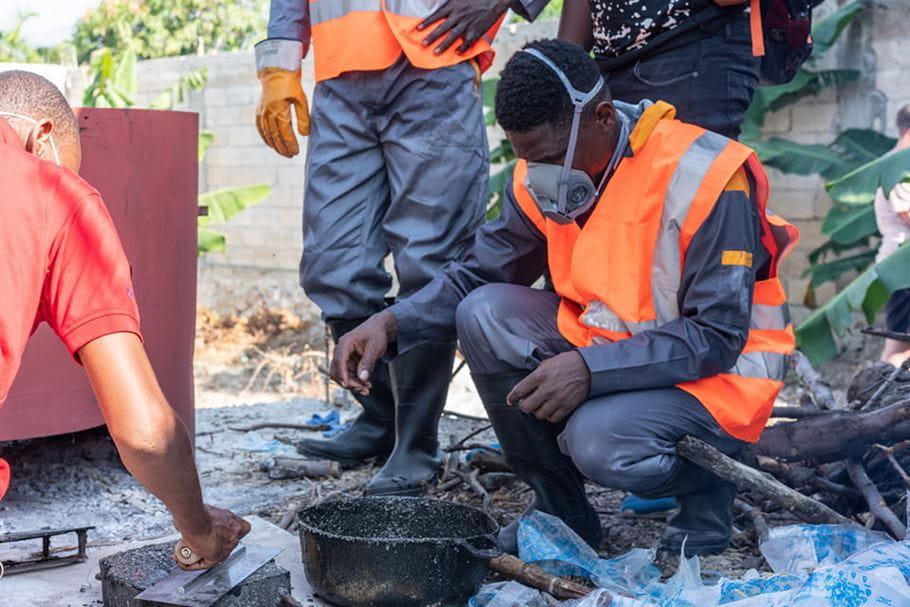
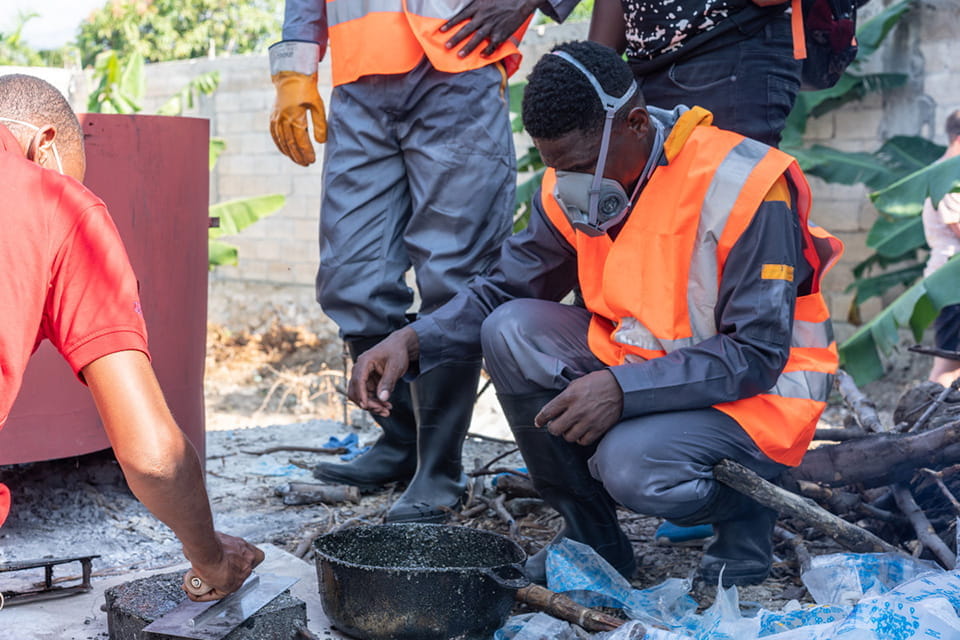
Transforming plastic waste into bricks at a recycling facility run by Tearfund's partners in Haiti. Credit: Kit Powney/Tearfund
Positive impact and hope for the future
In the first year of the project, over 23 tonnes of waste from around 45 families have been collected and transformed.
‘The project curbs the amount of waste going into our rivers and oceans, decreases the health effects of open burning of waste, and restores our environment,’ – Marc Antoine, Haiti Country Director.
Dina, a young nurse whose household has been enrolled in the waste collection service says: ‘They are doing a great job… it is for our good in the community. I hope they expand the service.’
The project is playing an important role in protecting the community’s health and the environment. And this is just the beginning – after the success of the pilot project, Tearfund is looking forward to launching a three-year Solid Waste Management project, which will provide waste management education and waste collection service to up to 3,000 households in Haiti.
PLEASE PRAY
- Thank God for lives transformed through the positive impact of the project so far. Pray that it will be successfully scaled up to help even more people escape the negative effects of poor waste management.
- Lift up Tearfund’s partners and all those working on the waste management project in Haiti, as they seek to continue to provide waste collection services during the coronavirus pandemic. Pray for their protection and safety as they serve others.
- Pray that more organisations across Haiti, including the government, will prioritise caring for creation and communities. Pray that they will work together and that sustainable solutions for waste management will be created and implemented.
Read more about how waste is harming people living in poverty here.
Similarly Tagged Content
Share this page
Share this page to spread the word and help support those in need.

Get our email updates
Learn about our work and stay in touch with Tearfund. Hear about our news, activities and appeals by email.
Sign up now - Get our email updates




.png)

